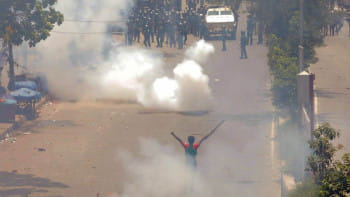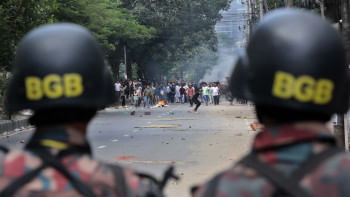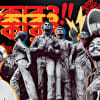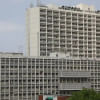Can we expect some accountability from the government?

Last week's political violence in Bangladesh was by far the worst I have seen since I first visited and fell in love with this country 15 years ago. Some media outlets report that around 150 lives have been lost, others say 170. Among those who lost their lives are young adults, uninvolved bystanders, and law enforcement personnel. Once the dust settles and a careful tabulation is done, the actual number of deaths could be far higher than the numbers circulating at the moment. In addition, thousands were injured, many of whom have a long road to recovery ahead, and some of whom may never fully recover.
What we saw was nothing short of disturbing and, tragically, seems it could have been largely avoidable. The protesters' initial demand for a reform of the quota system in government job recruitment, whether you agree with it or not, was surely not unreasonable, and should have been addressed through political dialogue. Instead, armed Chhatra League members entered the University of Dhaka campus on July 15, and attempted to quell the protests by assaulting protesters. The situation only escalated from there.
Now, as Bangladesh slowly edges towards a semblance of normalcy, all eyes must be on the government: will it choose accountability, or more of the cronyism and selective application of the law that got the nation into this trouble in the first place? As I write this column, I am looking at a bunch of national dailies and I see reports of more than three thousand arrests and many more cases filed in connection with the recent violence. BNP and Jamaat are mentioned over and over again, and the prime minster herself said that this time she "will not spare them." Insofar those arrested have in fact been engaged in violence and the destruction of public infrastructure and private property, and it is expected that they will be prosecuted to the full extent of the law.
I then searched for any reports of legal proceedings of any kind against the Chhatra League and law enforcers, but it was in vain. True accountability requires the equitable prosecution of everyone who broke the law, regardless of political or professional affiliation, as well as a transparent and independent inquiry into the government's response to the protests.
Hard questions, such as the following, must be addressed promptly, honestly, and transparently. The extent to which that will happen will show how sincere the government is in its commitment to democracy.
With the Chhatra League being the youth organisation of the ruling party, why did party leaders not call them off on July 15 to prevent the escalation of violence? Will there be a credible investigation of that failure, and will those who are found to be responsible be held accountable? Have security forces been analysing video footage to identify Chhatra League members who committed violence, and if so, have criminal proceedings been initiated against any of those identified?
On July 16, the Chhatra League and quota reform protesters gathered in Dhaka and across the rest of the country, carrying metal rods, sticks, stones, other weapons, and helmets. Yet, in many places, including in front of Dhaka College, there were clashes despite police presence. What was the rationale for letting violence unfold unopposed by law enforcement?
A day later, videos of a member of police shooting unarmed protester Abu Sayed point blank were widely shared on social media. He later died in a hospital. Has a formal investigation been launched, and has the officer involved in the shooting been suspended pending its outcome?
Are those responsible for the deaths of Dhaka Residential Model College student Farhan Faiyaaz and countless other protesters across Bangladesh being held accountable? Has an independent commission to investigate these deaths been formed? Who authorised the use of lethal force against protesters? What structural steps are the security forces taking to prevent the use of excessive force in the future?
What was the process and legal basis for the government's decision to shut off mobile data as well as broadband internet on July 18? Was civil society given the opportunity to request a judicial review of that decision? Considering the devastating impact of the decision to impose a curfew and shut off the internet for millions of people in terms of education, commerce, healthcare, and personal relationships, was that decision proportionate to the purpose it was meant to achieve? Were there no less disruptive means available to the government to achieve the same purpose?
With no opposition worth the name in parliament, who will do the necessary political work of reviewing the manner in which the total internet blackout unfolded and was justified by the government? Who will ask the government the questions that need to be answered to determine if it has overstepped its authority? The people of Bangladesh deserve timely answers to these and many other questions they are certain to have, and the government will be measured by the quality of the answers it provides. It has an opportunity to stake out a positive path forward. If that opportunity is missed, then who knows what awaits the country in the future.
Dr Rainer Ebert holds a PhD in philosophy from Rice University in Texas and is a research fellow in the Department of Philosophy, Practical and Systematic Theology at the University of South Africa. He can be reached at rainerebert.com, and his X handle is @rainer_ebert.
Views expressed in this article are the author's own.
Follow The Daily Star Opinion on Facebook for the latest opinions, commentaries and analyses by experts and professionals. To contribute your article or letter to The Daily Star Opinion, see our guidelines for submission.

 For all latest news, follow The Daily Star's Google News channel.
For all latest news, follow The Daily Star's Google News channel. 










Comments